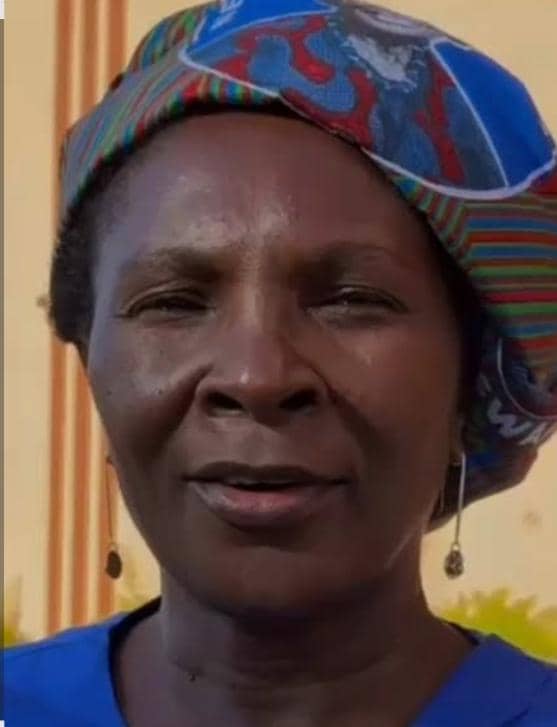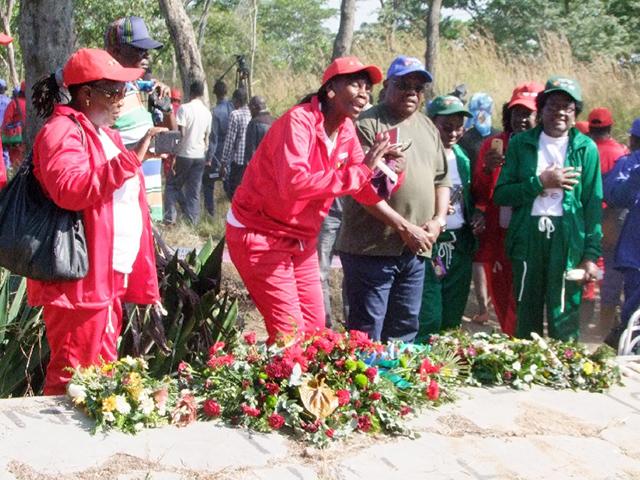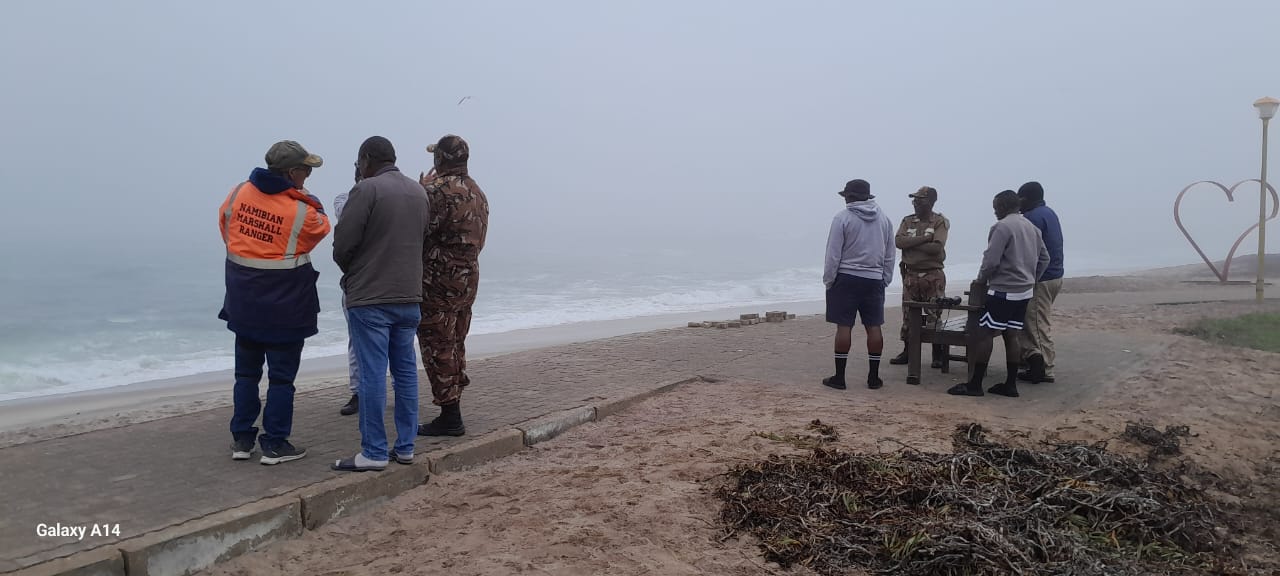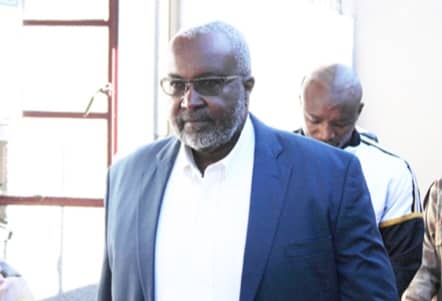LAGOS – Nigerian police routinely murder, torture and rape suspects in order to extract confessions and cover up their own corruption, the US-based pressure group Human Rights Watch said in a report released on Wednesday.
The group demanded that Nigeria punish members of the 33 000-strong force who carry out torture and called on the United States and Britain, which pour millions into police reform programmes, to put diplomatic pressure on Abuja. “For too long, the police in Nigeria have gotten away with murder and brutality,” said Peter Takirambudde, the head of the body’s Africa division, in a statement released alongside the 76-page document.”If President Olusegun Obasanjo wants to show the world that he is serious about pursuing justice, he should ensure that police torturers are held accountable for their crimes,” he added.Human Rights Watch’s report is based on interviews with more than 50 witnesses and visits to police stations and prisons around Nigeria.Its findings reflect those of other recent investigations, including one by a United Nations envoy.The Nigerian police’s own official figures appear to point to arbitrary shootings: in 2003, for example, 8 300 suspected “armed robbers” were arrested and 3 100 “killed in combat,” but only 3 451 illegal weapons were retrieved.The report is peppered with graphic witness accounts of how they were tied up, hung from ceilings, beaten, given electric shocks, sexually assaulted and threatened with death.Schoolgirls told of being brought in and raped.Most victims were suspects in ordinary crimes, but others had simply refused to pay the bribes demanded routinely and openly at police checkpoints.”The inspector beat me with a belt and wooden sticks and sprayed teargas in my private parts.She said I will never have peace in my life as I am a liar,” a 31-year-old woman arrested for theft in Lagos in January told the authors.The report was released at a time when the force is already coming under intense scrutiny within Nigeria, where it is almost universally regarded by the populace as one of the most corrupt and brutal organisations of government.A former chief of police, Tafa Balogun, was sacked in January and is on trial charged with embezzling almost 100 million dollars from police coffers.Five more officers are on trial accused of murdering six traders by opening fire on their car with AK-47 assault rifles following an altercation outside an Abuja nightclub last month.Witnesses, including the official police photographer called to the scene, have testified that the officers framed the victims by placing weapons near their bodies and killed an injured woman by forcing a nail up her nose.Nigerian authorities have pointed to the trial over the killings as proof that they are now serious about cleaning up the police, but already the most senior officer to have been charged has escaped from custody.The most complete study that the Nigerian government has itself ever made into rights abuses by state officials, the Oputa Panel Report, noted that the public consider the police “the principal means of obstructing justice.”They do this through bribe-taking, intimidation and outright violence.In a majority of the petitions that came before us in involving assassinations, murders, disappearances etc, the police were presented as accomplices.”Even before the Human Rights Watch report was made public, the Nigerian media was reflecting public concern.”Lust to kill; the sad story of the Nigeria police,” read the front-page headline in this week’s Tell Magazine.Nevertheless, as the report noted, brutality has been allowed to carry on for so long and reach such extremes because of the assumption which developed over Nigeria’s long years of army rule that uniformed forces are above the law.”Police torture in Nigeria is often socially accepted because it has been common for so long.A culture of impunity has protected the perpetrators,” the report said, alleging that victims have been threatened if they complained.So open is the practice of torture that some police stations have “jokingly” named an “Officer in Charge, Torture” among the ranks.- Nampa-AFP”For too long, the police in Nigeria have gotten away with murder and brutality,” said Peter Takirambudde, the head of the body’s Africa division, in a statement released alongside the 76-page document.”If President Olusegun Obasanjo wants to show the world that he is serious about pursuing justice, he should ensure that police torturers are held accountable for their crimes,” he added.Human Rights Watch’s report is based on interviews with more than 50 witnesses and visits to police stations and prisons around Nigeria.Its findings reflect those of other recent investigations, including one by a United Nations envoy.The Nigerian police’s own official figures appear to point to arbitrary shootings: in 2003, for example, 8 300 suspected “armed robbers” were arrested and 3 100 “killed in combat,” but only 3 451 illegal weapons were retrieved.The report is peppered with graphic witness accounts of how they were tied up, hung from ceilings, beaten, given electric shocks, sexually assaulted and threatened with death.Schoolgirls told of being brought in and raped.Most victims were suspects in ordinary crimes, but others had simply refused to pay the bribes demanded routinely and openly at police checkpoints.”The inspector beat me with a belt and wooden sticks and sprayed teargas in my private parts.She said I will never have peace in my life as I am a liar,” a 31-year-old woman arrested for theft in Lagos in January told the authors.The report was released at a time when the force is already coming under intense scrutiny within Nigeria, where it is almost universally regarded by the populace as one of the most corrupt and brutal organisations of government.A former chief of police, Tafa Balogun, was sacked in January and is on trial charged with embezzling almost 100 million dollars from police coffers.Five more officers are on trial accused of murdering six traders by opening fire on their car with AK-47 assault rifles following an altercation outside an Abuja nightclub last month.Witnesses, including the official police photographer called to the scene, have testified that the officers framed the victims by placing weapons near their bodies and killed an injured woman by forcing a nail up her nose.Nigerian authorities have pointed to the trial over the killings as proof that they are now serious about cleaning up the police, but already the most senior officer to have been charged has escaped from custody.The most complete study that the Nigerian government has itself ever made into rights abuses by state officials, the Oputa Panel Report, noted that the public consider the police “the principal means of obstructing justice.”They do this through bribe-taking, intimidation and outright violence.In a majority of the petitions that came before us in involving assassinations, murders, disappearances etc, the police were presented as accomplices.”Even before the Human Rights Watch report was made public, the Nigerian media was reflecting public concern.”Lust to kill; the sad story of the Nigeria police,” read the front-page headline in this week’s Tell Magazine.Nevertheless, as the report noted, brutality has been allowed to carry on for so long and reach such extremes because of the assumption which developed over Nigeria’s long years of army rule that uniformed forces are above the law.”Police torture in Nigeria is often socially accepted because it has been common for so long.A culture of impunity has protected the perpetrators,” the report said, alleging that victims have been threatened if they complained.So open is the practice of torture that some police stations have “jokingly” named an “Officer in Charge, Torture” among the ranks.- Nampa-AFP
Stay informed with The Namibian – your source for credible journalism. Get in-depth reporting and opinions for
only N$85 a month. Invest in journalism, invest in democracy –
Subscribe Now!










